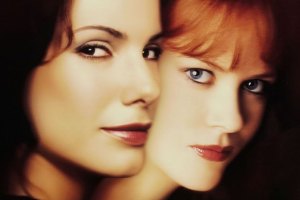Endgame with Douglas Hodge and Mathew Horne at Theatre Royal Bath’s Ustinov Studio – review
Lindsay Posner’s revival of the Samuel Beckett classic runs until 4 October

When Endgame premiered in 1957, the world was rebuilding from war and living under the shadow of nuclear annihilation. Nearly seven decades later, in a culture steeped in apocalyptic imagery, Samuel Beckett’s vision of humanity feels as sharp and unsettling as ever. In the intimate confines of the Ustinov Studio, Lindsay Posner’s assured production finds both the bleak humour and haunting resonance of Beckett’s masterpiece. At just 90 minutes, the play leaves you suspended in its unrelenting darkness – the return of the houselights feels like a lifeline.
Set in a decaying room that seems to exist outside time, Endgame offers a portrait of humanity stripped bare. In the centre is Hamm, blind, tyrannical, and wheelchair-bound, lording over his weary, resentful servant Clov. Hamm’s legless parents, Nagg and Nell, are confined to ashbins, relics of a past that has all but crumbled to dust. Through sparse, repetitive dialogue, Beckett probes themes of control, futility, and the absurdity of existence. It’s a work that challenges the audience as much as it challenges its characters, but Posner’s production finds clarity in the chaos, anchored by a quartet of strong performances.
Douglas Hodge’s Hamm is nothing short of extraordinary. Anchored to his chair, he exudes both menace and vulnerability, a king clinging to power in an empire of dust. His face, stretched into a grotesque grin, and his voice, veering from rasping growls to otherworldly cries, suggest a man unravelling at the seams. Hodge’s performance is layered and precise, occasionally laced with an arched eyebrow or camp inflection that recalls his Albin from La Cage aux Folles. But Hamm is no preening diva – he is a man hollowed out by despair; a tyrant whose bark disguises his fragility. Hodge delivers a performance that is both monstrous and deeply human, cementing his status as one of the most quietly brilliant actors of his generation.
Mathew Horne’s Clov, however, is less assured. While technically skilled, his portrayal leans too heavily into clownishness, with exaggerated gurning. There’s no doubt about Horne’s ability; his physicality is sharp, and his timing is impeccable, but the performance lacks the emotional heft to balance Clov’s absurdity with his existential weariness.

In contrast, Clive Francis and Selina Cadell bring depth and poignancy to Nagg and Nell, Hamm’s spectral parents. Francis, ashen and ghostly, feels like he’s already halfway to the grave, while Cadell offers a flicker of warmth and humour, her presence a brief glimmer of life before it’s extinguished. Together, they evoke the aching fragility of Beckett’s vision.
Posner’s direction is unshowy but precise, shaping the production with a steady hand. Known for his work on Noises Off and The Deep Blue Sea, Posner brings clarity and focus to Beckett’s labyrinthine text. He doesn’t seek to reinvent the wheel but instead allows the play’s inherent power to shine. Jon Bausor’s set design amplifies the sense of desolation: a void-like blackness that swallows the stage, broken only by the stark outlines of the characters’ crumbling world. The vaudevillian rhythms of Beckett’s writing – Clov’s endless ladder routines, the knock-knock cadence of the dialogue – are handled with dexterity, ensuring the humour lands without undercutting the play’s existential weight.
This production of Endgame is a stark reminder of Beckett’s brilliance and the enduring relevance of his work. It’s not an easy watch, nor should it be. The play confronts despair head-on, offering no resolution beyond the absurdity of simply continuing. Yet in Posner’s hands, the gloom is shot through with flashes of humour and humanity, a testament to the resilience of Beckett’s vision. It’s a challenging, unrelenting ride, but impossible to look away from.















